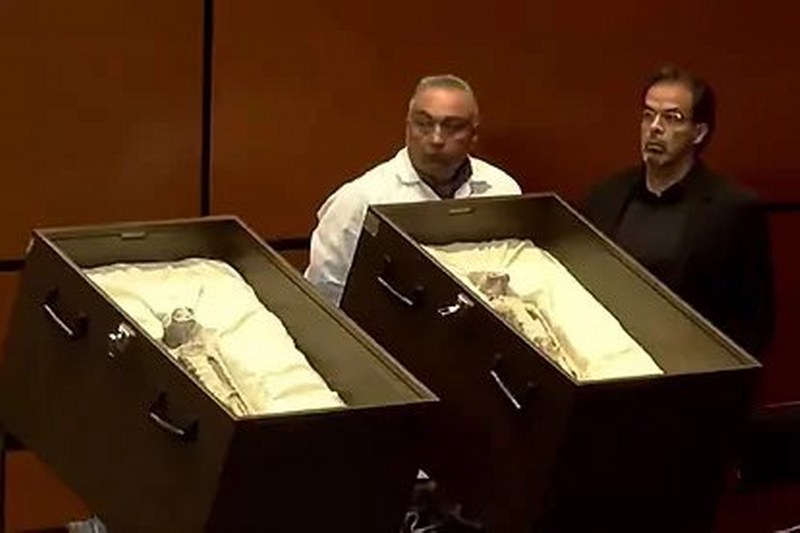Viral Video: 'Non-human' alien corpses displayed at Mexico Congress

Triggering debate over the existence of extraterrestrial beings, the Mexico Congress recently hosted an unusual event in country's capital city.
During the event, alleged Alleged “non-human” alien corpses were displayed to the politicians of the country at the country’s Congress.
The two small alleged alien corpses, retrieved from Cusco, Peru, were presented in windowed boxes in Mexico City on Wednesday, stirring excitement within the UFO conspiracy theorist community, reports Independent.
The video of the event has gone viral over the social media platforms.
Jaime Maussan, who has led investigations into alien phenomena for decades, stood with scientists to unveil two corpses in what he called a 'watershed' event in front of Mexican Congress on Tuesday, Daily Mail reported.
Carbon dating by the National Autonomous University of Mexico (UNAM) found the bodies, pictured with three-fingered hands, no teeth and stereoscopic vision, were more than 1,000 years old, Maussan claimed as quoted by the newspaper.
Maussan said: "These specimen are not part of our terrestrial evolution [...] These aren't beings that were found after a UFO wreckage. They were found in diatom [algae] mines, and were later fossilized."
"Whether they are aliens or not, we don't know, but they were intelligent and they lived with us. They should rewrite history," Maussan said.
He said humanity should accept that they are not alone in this universe.
Experts in congress showed apparent X-rays of the specimens and told deputies that one of the beings carried 'eggs' with embryos inside them, reports Daily Mail.
They said they had implants of cadmium and osmium metals.
Maussan described the event as a 'watershed' moment.
He said the bodies were recently studied at the Autonomous National University of Mexico (UNAM), where scientists studied them with radiocarbon dating, reports Daily Mail.
Abraham Avi Loeb, the Director of the Harvard Astronomy Department, appeared by video link and asked the Mexican government to grant international scientists permission to further research the specimens.



